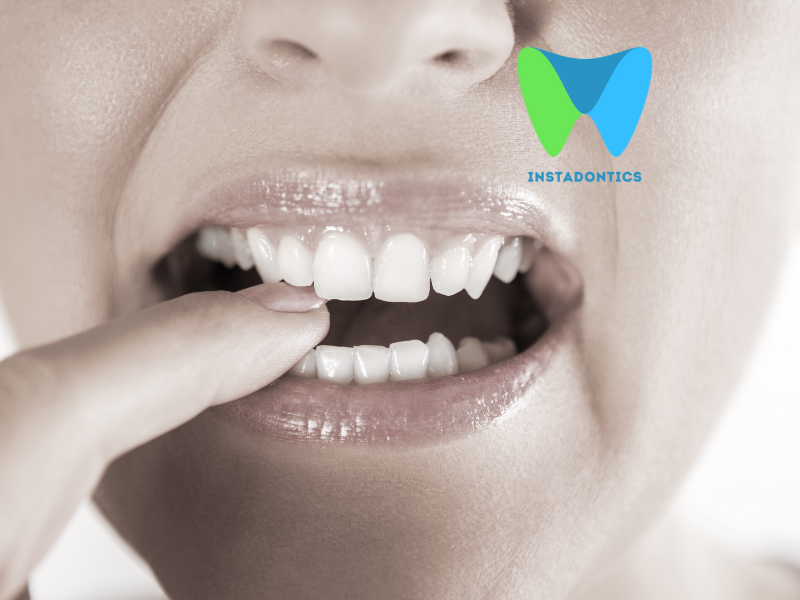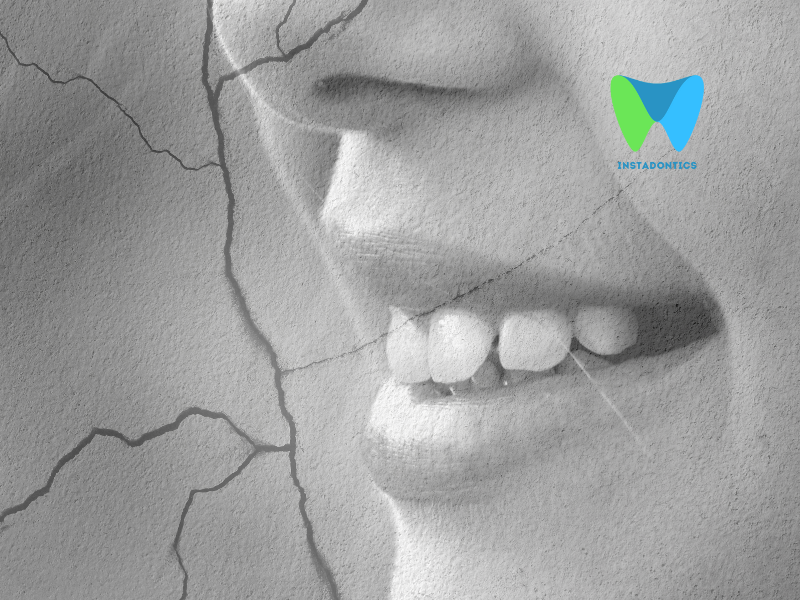The Alarm of Sudden Tooth Pain
Experiencing sudden pain in all your teeth can be alarming and uncomfortable. While it might be easy to dismiss occasional toothache as a minor issue, sudden and widespread tooth pain often signals an underlying problem that needs prompt attention. In this comprehensive guide, we’ll explore the various causes of sudden tooth pain, effective treatment options, and preventive measures you can take to ensure your teeth remain healthy and pain-free.
What Causes Sudden Tooth Pain?
1. Dental Infections
One of the most common causes of sudden, widespread tooth pain is a dental infection. Dental abscesses and infections in a tooth or the surrounding gum tissue can cause severe pain that can radiate throughout your mouth.
2. Tooth Decay
Tooth decay, or cavities, can cause significant pain if the decay has reached the inner layers of the tooth. When multiple teeth are affected by decay, you might experience widespread pain.
3. Gum Disease
Gum disease, such as gingivitis or periodontitis, can cause inflammation and pain that affects multiple teeth. This pain is often accompanied by symptoms like swollen, bleeding gums and bad breath.
4. Bruxism (Teeth Grinding)
Bruxism, or teeth grinding, often occurs during sleep and can cause widespread tooth pain. Grinding your teeth can wear down the enamel, leading to sensitivity and discomfort in multiple teeth.
5. Sinus Infections
The roots of your upper teeth are close to your sinus cavities. A sinus infection can cause pressure and pain that radiates to your teeth, leading to widespread toothache.
6. Dental Trauma
Injury or trauma to your mouth, such as a blow to the face, can lead to pain in multiple teeth. Cracks or fractures in teeth might not always be visible but can cause significant discomfort.
7. Temperature Sensitivity
Sudden exposure to extreme temperatures, such as consuming hot or cold foods and drinks, can cause widespread tooth pain, particularly if you have sensitive teeth or exposed dentin.
8. Improper Dental Procedures
Dental procedures such as fillings, crowns, or root canals done improperly can lead to widespread discomfort. Pain may result from issues like improper bite alignment or residual infection.
9. Nutritional Deficiencies
A lack of essential nutrients, particularly calcium and vitamin D, can weaken your teeth and gums, leading to pain. Ensuring a balanced diet rich in these nutrients can help maintain healthy teeth.
Signs and Symptoms Associated with Tooth Pain
Besides the primary symptom of pain, you might experience other symptoms that can help identify the underlying cause:
- Swelling in the gums or face
- Persistent bad breath
- Pain when chewing or biting
- Sensitivity to hot and cold temperatures
- Bleeding gums
- Earaches or sinus pressure
Effective Treatments for Sudden Tooth Pain
1. Dental Examination
The first step in addressing sudden tooth pain is to visit your dentist for a thorough examination. Identifying the cause is crucial for effective treatment.
2. Professional Cleaning
If gum disease is the cause, a professional dental cleaning can help remove plaque and tartar buildup, reducing inflammation and pain.
3. Fillings and Restorations
For tooth decay, your dentist might recommend fillings or other restorative procedures to repair damaged teeth and alleviate pain.
4. Root Canal Therapy
If the pain is due to an infected tooth pulp, root canal therapy can save the tooth and alleviate pain by removing the infected tissue.
5. Bruxism Treatment
To manage bruxism, your dentist might recommend wearing a nightguard to prevent teeth grinding and reduce pain.
6. Medications
For dental infections or inflammation, antibiotics and anti-inflammatory medications can help manage pain and resolve the infection.
7. Home Remedies
Several home remedies can provide temporary relief from tooth pain:
- Saltwater Rinse: Rinsing with warm salt water can help reduce bacteria and soothe inflamed gums.
- Cold Compress: Applying a cold compress to your cheek can reduce swelling and numb the pain.
- Clove Oil: Applying clove oil to the affected area can provide temporary pain relief due to its natural anesthetic properties.
Preventing Widespread Tooth Pain
1. Maintain Good Oral Hygiene
Consistent oral hygiene is essential for preventing tooth pain. Brush and floss regularly and visit your dentist for routine check-ups and cleanings.
2. Use a Mouthguard
If you grind your teeth at night, wearing a mouthguard can protect your teeth from damage and reduce pain.
3. Eat a Balanced Diet
A diet rich in vitamins and minerals is crucial for maintaining healthy teeth and gums. Incorporate foods high in calcium, vitamin D, and other essential nutrients.
4. Avoid Tobacco Products
Tobacco use can increase your risk of gum disease and other dental problems. Quitting smoking can significantly improve your oral health.
5. Manage Stress
Stress can contribute to conditions like bruxism. Practice stress management techniques such as yoga, meditation, or regular exercise to support your overall health.
When to See a Dentist
Sudden and persistent tooth pain is a signal that something is wrong. If you experience widespread tooth pain that doesn’t subside within a day or two, it’s essential to see a dentist promptly. Early diagnosis and treatment can prevent more severe complications and ensure that your teeth stay healthy.
FAQs: Why Do All My Teeth Hurt Suddenly?
Q1: Can sinus infections cause tooth pain?
A1: Yes, sinus infections can cause pressure and pain in your upper teeth due to their proximity to the sinus cavities.
Q2: How can I tell if my tooth pain is due to a cavity?
A2: Tooth pain due to cavities is often localized and accompanied by sensitivity to sweet, hot, or cold foods. A dental examination is the best way to diagnose cavities.
Q3: Can stress cause tooth pain?
A3: Yes, stress can lead to conditions like bruxism, where you unconsciously grind your teeth, resulting in widespread tooth pain.
Q4: Is it normal to have tooth pain after dental procedures?
A4: Some discomfort is normal after dental procedures, but if pain persists or worsens, contact your dentist for evaluation.
Q5: What home remedies can help with sudden tooth pain?
A5: Home remedies such as saltwater rinses, cold compresses, and clove oil can provide temporary relief from tooth pain.
Q6: Can poor oral hygiene cause sudden tooth pain?
A6: Yes, poor oral hygiene can lead to gum disease and tooth decay, both of which can cause sudden and widespread tooth pain.
Q7: How is bruxism treated?
A7: Bruxism is often treated with a nightguard to prevent teeth grinding, along with techniques to manage stress and regular dental check-ups.
Q8: Can a vitamin deficiency cause tooth pain?
A8: Yes, deficiencies in vitamins like calcium and vitamin D can weaken teeth and gums, potentially leading to pain.
Why Do All My Teeth Hurt Suddenly?
Sudden pain in all your teeth can be distressing, but understanding the possible causes and seeking prompt treatment can alleviate your discomfort and prevent further complications. By maintaining good oral hygiene, addressing underlying health conditions, and visiting your dentist regularly, you can keep your teeth healthy and pain-free. If you experience persistent or severe tooth pain, don’t hesitate to seek professional dental care. Early intervention is key to resolving dental issues and ensuring your overall oral health.
By following these guidelines, you’re well on your way to understanding the root causes of sudden tooth pain and how to effectively treat and prevent it. Taking proactive steps today can ensure a healthier, pain-free smile tomorrow!



